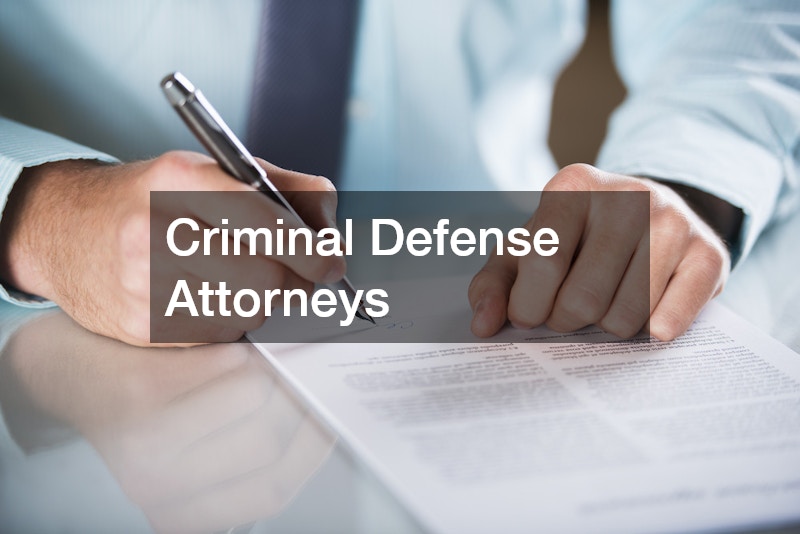Litigation is the legal process of resolving disputes through the court system. It involves a series of steps, from filing a lawsuit to a final judgment, aimed at resolving conflicts between parties. The process typically begins when one party, the plaintiff, files a complaint against another party, the defendant, alleging wrongdoing or a breach of contract. The defendant must then respond, either by contesting the claims or seeking dismissal.
Litigation encompasses various stages, including discovery, where both parties gather and exchange evidence, and pre-trial motions, where issues may be settled or narrowed before going to trial. If the dispute cannot be resolved through negotiations or mediation, the case proceeds to trial, where a judge or jury examines the evidence, hears arguments, and makes a decision.
While litigation can be an effective way to enforce rights and seek compensation, it is often time-consuming, costly, and unpredictable. Many cases are settled out of court to avoid the expense and uncertainty of a trial. However, when an amicable resolution cannot be reached, litigation remains a critical tool for individuals and businesses to address grievances and seek justice.
In today’s complex legal environment, understanding the benefits of litigation can be crucial, especially as you navigate through varied personal and professional challenges. Whether it’s an accident attorney guiding you after a collision, a family law attorney assisting you during a custody battle, or a criminal defense attorney defending your rights, litigation provides a structured process for resolving disputes. As litigation spans across different areas of law, each with its unique intricacies, it’s important to appreciate its advantages in protecting your interests and ensuring justice is served. This article delves into the litigation process, examining its advantages and application across various fields including bankruptcy assistance, medical malpractice, DUI defenses, and more, while highlighting the roles of key attorneys in these cases.
Accident Attorney
Accident attorneys play a pivotal role in helping victims navigate the aftermath of personal injury incidents. When you’re facing the consequences of an accident, litigation can offer several advantages, including offering victims a structured path to securing rightful compensation. Accident attorneys leverage their expertise to ensure you’re adequately represented in court and help maximize any settlements or awards you may receive.
In most personal injury cases, the litigation process involves thorough investigation and negotiating with insurance companies. The advantages of litigation become apparent as accident attorneys work diligently to collect evidence and build a strong case. This level of expertise often challenges insurance companies, encouraging fairer settlements compared to dealing without legal support.
Moreover, litigation serves as a deterrent for negligent behavior that leads to accidents. By holding responsible parties accountable, accident attorneys help enforce safety standards and regulations, ultimately resulting in safer communities. The advantages of litigation extend beyond individual cases, contributing to a larger societal benefit.

Criminal Defense Attorneys
Criminal defense attorneys are essential in ensuring that the rights of defendants are protected throughout the legal process. One of the primary advantages of litigation in criminal cases is the adherence to due process, ensuring that all legal procedures are followed and evidence is scrutinized. This meticulous approach helps to unearth inconsistencies and discrepancies that could prevent miscarriages of justice.
Litigation in criminal defense involves a detailed examination of evidence and witness testimonies. Criminal defense attorneys work rigorously to build a defense strategy, taking full advantage of the litigation process to question and challenge the prosecution’s case. This strategic approach is crucial for defending against charges and can often result in reduced sentences or even acquittals.
The adversarial system of litigation provides defendants with a platform to tell their side of the story. Through cross-examinations and presentational hearings, criminal defense attorneys empower clients to face accusations with confidence, taking advantage of litigation to highlight procedural errors or violations of rights and ultimately ensuring a fair trial.
Custody Lawyer
Custody lawyers are instrumental in navigating the emotionally charged waters of family law. Litigation in this sphere offers clear advantages, especially in contentious custody disputes where parties struggle to reach agreements. The structured framework of litigation ensures that children’s best interests are taken into consideration while providing a formal setting for both parties to present their arguments.
Through litigation, custody lawyers advocate for their clients’ parental rights, seeking resolutions that ensure stability for children involved. The advantages of litigation here include presenting compelling evidence such as home studies, testimony from child psychologists, and other expert opinions to support their client’s case. This comprehensive process aims to establish a custody arrangement that benefits all parties involved.
Moreover, litigation provides a transparent process where decisions are made based on evidence and legal precedence rather than personal bias or external influence. Clients benefit from the objective perspective of the court, guided by the meticulous preparation and representation provided by their custody lawyer.

Criminal Lawyers
Criminal lawyers, distinct from defense attorneys by often working in various roles across the legal system, utilize the advantages of litigation to navigate complex legal scenarios. Whether arguing for the prosecution or defense, their deep understanding of litigation helps achieve just outcomes. This includes negotiating plea deals or presenting comprehensive cases in court depending on their role in the judicial process.
The adversarial nature of litigation means that criminal lawyers must be well-prepared, thorough, and strategic in their approach. This includes examining forensic evidence, understanding police procedures, and navigating constitutional law to build a convincing case. The emphasis on procedural fairness ensures that both defense and prosecution abide by due process, maintaining the integrity of the justice system.
Successful litigation led by skilled criminal lawyers can lead to significant improvements in legal procedures and outcomes. Among the advantages of litigation is its role in setting precedents that influence future cases, helping refine laws, and establish more predictable legal outcomes – all contributing to a more consistent legal system.
Bankruptcy Assistance
Bankruptcy assistance is a critical legal service for individuals and businesses overwhelmed by debt. The process of litigation plays a crucial role in navigating the complexities of bankruptcy cases. The advantages of litigation in bankruptcy include negotiating terms with creditors and providing clear legal protections for clients seeking relief.
Bankruptcy cases often involve multiple stakeholders, including creditors, trustees, and the courts. Through litigation, attorneys specializing in bankruptcy assistance can ensure that the proceedings are conducted fairly and equitably, offering their clients the best chance to regain financial stability. This includes petitioning for stays on debt collections and restructuring agreements to allow manageable repayment plans.
During litigation, the court’s involvement helps standardize the bankruptcy process, ensuring that all parties adhere to legal requirements. By leveraging litigation advantages, attorneys can secure favorable outcomes that can mean the difference between a fresh start and continued financial peril for their clients.

Chapter 13 Bankruptcy
Chapter 13 bankruptcy is designed to help individuals reorganize their debt, and the litigation process is pivotal in these proceedings. The advantages of litigation here include the ability to propose a repayment plan that courts can approve, allowing debtors to retain ownership of significant assets while paying off debt over time.
Through litigation, lawyers can negotiate adjustments to owed amounts, potentially reducing interest rates and removing penalties. This structured repayment plan is an orderly approach to debt resolution, supported by the oversight advantages of litigation, which ensures creditors are treated equitably. This process often results in a more manageable financial future for individuals struggling with debt.
Moreover, the court-enforced nature of Chapter 13 litigation offers clients legal protection against further collection efforts during the repayment period. The advantages of litigation in such cases also include ensuring that clients’ rights are upheld, providing a fair chance for debt recovery and financial rehabilitation.
Family Law Attorney
Family law attorneys specialize in legal issues surrounding familial relationships, offering litigation as a powerful tool to resolve disputes involving divorce, alimony, and child custody. The advantages of litigation in family law involve a structured process where evidence and arguments are presented in a formal setting, allowing an impartial judge to deliver fair decisions.
Litigation provides a transparent process where family law attorneys can advocate vigorously on behalf of their clients. This includes preparing comprehensive case strategies that leverage objective evidence, witness testimony, and legal precedents. These efforts ensure that clients’ needs and concerns are effectively communicated and considered in court resolutions.
Beyond the resolution of disputes, the litigation process can provide closure for families, allowing them to move forward with clarity and certainty. By upholding due process and scrutinizing all aspects of family disputes, litigation offers a methodical approach to achieving outcomes that reflect the best interests of all parties, particularly children.

Medical Malpractice Attorney
Medical malpractice attorneys provide crucial legal representation for individuals harmed by medical negligence. The advantages of litigation in medical malpractice cases involve the ability to hold healthcare providers accountable through a detailed and evidence-based process, fostering accountability and enhancing patient safety standards.
The litigation process enables medical malpractice attorneys to present detailed medical evidence, expert testimony, and thorough analyses of procedural errors. This structured approach is advantageous as it lays bare negligence, leading to compensation for victims who have suffered due to inadequate medical care or breaches of duty by healthcare professionals.
Moreover, successful medical malpractice litigation has broader implications for the healthcare industry, often leading to improved regulations and practices. By leveraging the advantages of litigation, attorneys help ensure that systemic issues are addressed, ultimately benefiting future patients by reducing incidences of negligence and promoting a culture of safety and accountability.
DUI Attorneys
DUI attorneys specialize in defending individuals accused of driving under the influence, making use of litigation to navigate the complexities of DUI cases. The advantages of litigation include challenging evidence such as breathalyzer accuracy, field sobriety test procedures, and arrest protocols, all crucial for defending the accused.
In DUI cases, litigation helps to meticulously scrutinize the legality of the traffic stop and arrest process. DUI attorneys benefit from the adversarial nature of litigation, allowing them to question police conduct and present alternative narratives. This rigorous defense is vital, as convictions could significantly impact their clients’ lives, affecting driving privileges, employment opportunities, and even personal freedoms.
Through litigation, DUI attorneys advocate for their clients’ rights, often securing reduced charges or alternative sentencing. The advantages of litigation in these cases are immeasurable, providing a foundation for fair trials where defendants have opportunities to defend themselves fully and avoid unjust penalties.

Legal Services
The diverse field of legal services encompasses numerous specialties that benefit from the advantages of litigation. Whether you need legal representation in civil, criminal, or administrative matters, qualified attorneys guide you through the complexities of litigation. This ensures that your case is managed professionally, with all legal rights protected and asserted.
Utilizing litigation within legal services offers structured pathways to dispute resolution. This process emphasizes adherence to established legal protocols, offering a level of predictability and stability in resolving legal conflicts. Attorneys across diverse fields rely on litigation to balance interests and achieve just outcomes for their clients.
Moreover, litigation in legal services contributes to the evolution of laws and precedents. By resolving disputes through litigation, attorneys play a crucial role in shaping the judicial landscape, refining legal standards, and prescribing solutions that extend beyond individual cases and benefit society at large.
Throughout various legal fields, the advantages of litigation stand out as a fundamental tool for resolving disputes, asserting rights, and ensuring justice. Whether through the craftsmanship of an accident attorney, the strategic defense of criminal defense attorneys, or the advocacy of family law practitioners, litigation provides a structured and effective means of navigating legal challenges. By holding parties accountable and providing clear pathways to fair hearings, litigation underpins the legal services landscape, offering a safeguard for justice seekers.
As demonstrated across numerous examples, litigation’s structured approach allows each field to benefit from its advantages, whether it is accountability in medical malpractice cases, rights protection in DUI defenses, or debt relief through bankruptcy proceedings. This article highlights the essential role of litigation in achieving equitable outcomes and securing societal improvements, underlining its importance as a legal mechanism that lawyers dedicate their expertise to mastering.
Understanding litigation’s significance encourages individuals to seek appropriate legal counsel, empowering them to leverage its benefits in pursuing justice and resolution. This comprehensive examination reinforces the necessity of litigation for effective legal practice, supporting clients across diverse needs and circumstances.



